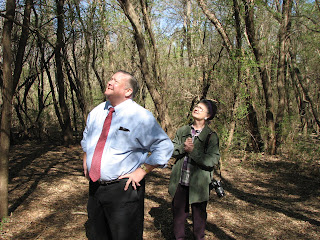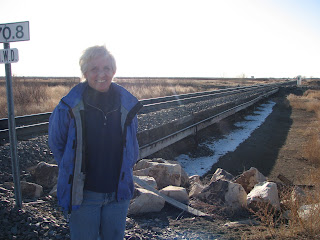WATERLOO - The government said the trees John Walter Riggs requested would never grow in Kansas.
Grandson and namesake John Riggs chuckles at this statement as he stood amid 10 acres of timber, gesturing to four sturdy Bald Cyprus trees that are well beyond 100 years in age - a few of the saplings the U.S. Department of Agriculture told him couldn't grow in a climate like that of Kansas.
Not that these naysayer theories weren't warrant. After all, when the elder Riggs, an Indiana native, first came to the small, Kingman County town of Waterloo in the 1880s, there was nothing around it but barren prairie.
The new Kansas pioneer, however, had visions for this vast sea of grass.
On a recent spring day, grandson Riggs, of Lindsborg, and his wife, Janie, walked through the trails crisscrossing 10 acres of what is known as Riggs Arboretum - proclaimed to be the oldest arboretum west of the Mississippi.
Thanks to his grandson and others, John Walter Riggs' legacy lives on in this little ghost town.
FYI The Riggs Arboretum is open by permission. For more information, call the Riggses at (785) 227-3858. The spring work weekend is April 15-16. All volunteers are welcome.














































